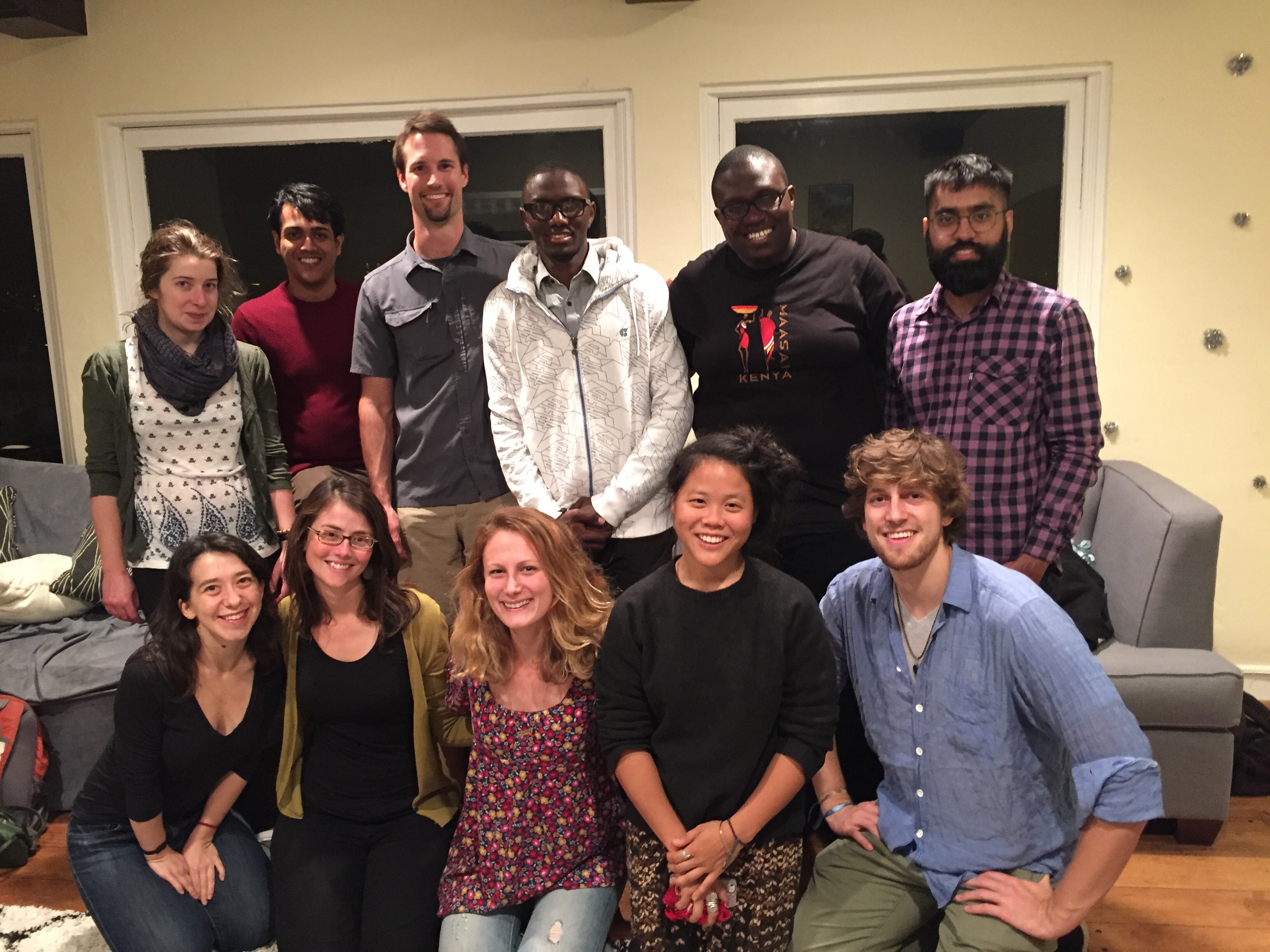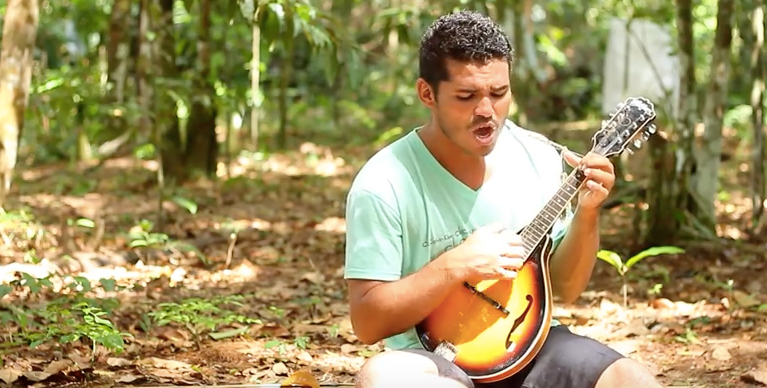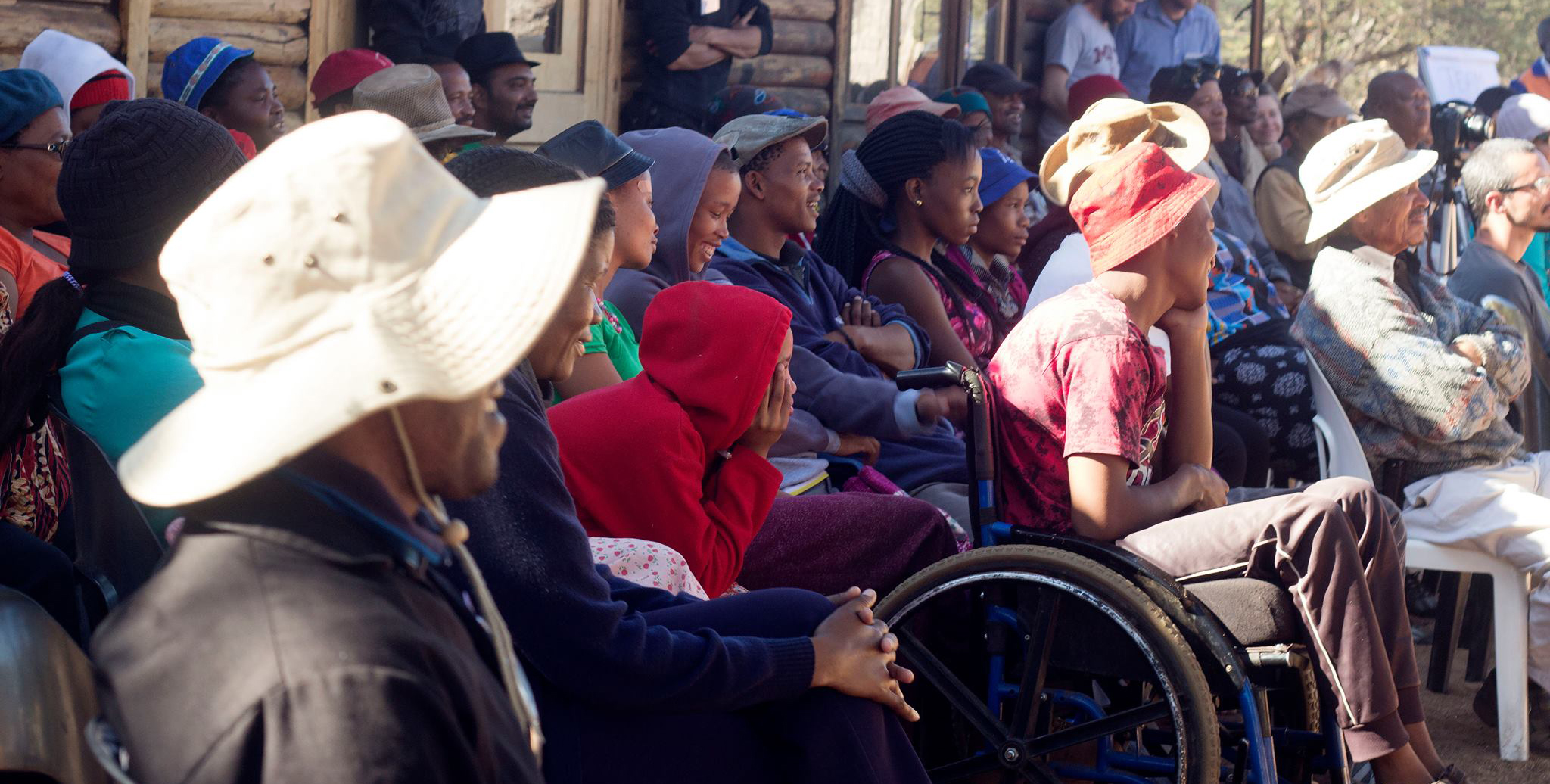IDIN Educators Reflect on Diversity and Inclusion in Preparation for FabLearn 2016

Top, left to right: Manon Woringer, Arvind Badrinarayanan, Eric Reynolds, Alphonse Habyarimana, Aggrey Mokaya, Umar Shehzad Bottom, left to right: Molly Rubenstein, Natalie Brubaker, Agnes Pyrchla, Deborah Tien, Zachary Bleckner
Representatives from seven IDIN-affiliated education programs in as many different countries have been preparing to share what they’ve learned with other educators from around the world using design and fabrication in their programs at Stanford University’s FabLearn 2016 conference, taking place in Palo Alto, California, this weekend.
The theme of this year’s conference is “Diversity in Making: People, Projects & Powerful Ideas.” In anticipation of their participation in the conference, we asked these educators from our network to share a few thoughts about how diversity and inclusion feature in their work.
Make-i-stan, Pakistan
"In a largely homogeneous population of Pakistan where conformity to social norms is expected and underprivileged segments of the society typically go unnoticed, diversity is not just our desire, it is necessary to empower these groups for the welfare of the society as a whole. The biggest challenge that we face at Make-i-stan is the inclusion of women & people belonging to minorities in our activities, despite the fact that we are as open as we can be when it comes to encouraging diversity at our space. To make a diverse set of individuals feel welcome, we have ensured that our core team of committed volunteers includes women and people from minority segments of the society. We are working on additional outreach; one of our team members who belongs to a minority sect organizes weekly classes in his community using borrowed equipment from our space, and we hope to start occasional exclusive training sessions for women conducted by our female team members." — Umar Shehzad, Make-i-stan
Umar will be sharing insights from his paper “Enabling Interdisciplinary & Multidimensional Learning in Maker Spaces” at the Community Makerspace – Education Roundtable at 1pm on Sunday in Room 527. Mustafa Naseem, founder of Make-i-stan, will also be attending the conference.
Project DEFY (Define Education For Yourself), India
"The education system in India didn’t work well for me. When I decided I wanted to develop an alternative, I quit my job and moved to a small village with just a few clothes, a mattress, a pillow, and my dog. I believe that in order to understand a problem one must live it, and in India, where 70% of the population is rural, an education solution for the people means a village solution. So I became a part of Banjarapalya, sharing life with the villagers and learning from them. Together, we (the children, the women, the elders, the teachers, the farmers, the poor and the rich...) worked to understand the reality of education from our shared perspective and devised a solution for us: Project DEFY.
This for me is inclusion - not a set of segments one creates, but rather a shared community one designs. In our Nooks (what we call our spaces), not only is everyone welcome, but each person is part of the space and its processes and contributes to its design. Both our Nooks have 50% female participation, and we are creating inclusion for different disabilities.
Of course it is challenging - humans fight and disagree, perspectives and perceptions differ, and opinions clash. But if a vision is understood and shared (not just taught), then people eventually come together in common interest.
Diversity must be designed into the soul of what you create. Create a dependency on it such that the system stops working if diversity does not exist any more. And then work really hard :)." — Abhijit Sinha, Founder & Director
Arvind Badrinarayanan, Co-Director, will be representing Project DEFY as second speaker in the Educator Ignite Talks, 9am Sunday, presenting his paper “Can Education Be Self-Designed?”
Kepler Tech Lab, Rwanda
"In any form of education, it is important to encourage equal participation of learners, most importantly of all genders. At Kepler Tech Lab, an open source laboratory model and practical science and engineering curricula, we really wish to have students of both genders, but we fail to get balance in our classroom because Rwandan girls seem not to be interested in engineering careers. This is the biggest challenge we are facing now. Starting this October 2016, we are designing a curriculum for 9th grade students specifically to encourage girls to like science and engineering when they are still young. We truly believe that this curriculum is going to result in equal participation of boys and girls into our classroom." — Alphonse Habyarimana, Manager & Developer
Alphonse was recently named Stanford FabLearn Fellow, and is in attendance this weekend.
Change Hub Innovation Center, Kenya
"Change Hub Innovation Center works with those in the Kenyan prison system, who are often seen as a liability and a burden to the wider society. We seek to create opportunities for inmates to tap into their potential as designers while learning new skills in different fields. By so doing, we hope to help them begin to contribute positively and innovatively to society, and provide a means for them to earn a living upon release. The process is fraught with challenges: especially naysayers and societal stigma. We believe these challenges can only be overcome by giving more inmates a chance to showcase their innovation potential until we hit a critical mass of supporters who buy into the vision of what we are trying to achieve." — Aggrey Mokaya, Founder
Aggrey will be presenting his paper “Spaces without Borders: Empowering Women in the Kenyan Prison System” in the poster session on Sunday at 11:45am in Room 300.
Kumasi Hive, Ghana
"Access to technology and tools is unfairly distributed across the globe. Where it is lacking, it hinders individuals from tapping into indigenous creativity to solve problems that pertain to their communities and their lives. Kumasi Hive seeks to democratize access to tools and leverage the usage of technology in developing countries by focusing on the use of local materials while appropriating 4th industry technologies such as Robotics, Internet of Things, Drones, 3D printing, Mobile technology, and Big Data to solve Africa's most pressing challenges. Not only can leveraging these technologies help address present challenges such as agriculture, education, healthcare, and financial inclusion, but it also helps prepare the youth for the future and leapfrog traditional, inefficient, unsustainable ways of solving such problems." — Jorge Appiah, Co-Founder & CEO
Jorge Appiah was scheduled to present on his work at Kumasi Hive at FabLearn this weekend, but unfortunately one of the challenges to inclusivity in our global work is that it is exceedingly difficult for members of our network from certain countries, including Ghana, to get visas to attend events like this one in the United States. This is particularly true for young men. We are extremely disappointed that Jorge will not be able to attend the conference this weekend.
Twende, Tanzania
"Twende is built on many different forms of diversity - from age to nationality to formal education level to religion to life experiences & perspective. It's that final category that can be especially challenging to embrace, yet it's also the secret to the 'Magic' people mention when describing the Twende community. Because we're all so different, folks feel welcome in our space, and they feel like they can contribute something meaningful to their communities - regardless of their background. It's tricky balancing everyone’s distinct needs and finding ways all sorts of individuals can make impact through technology solutions, but we're starting to figure it out by listening, asking, and discussing with different stakeholders as we co-create structures for people to explore and grow into. Wish us luck and feel free to follow our journey via Facebook or our website." — Deborah Tien, Executive Director
"What made my experience at Twende so rich is the diversity of the people I worked with to make our projects into realities. Thinking all together, including all our different approaches and backgrounds, generates so much creativity. And together, with all these different points of view we're much stronger in addressing appropriately the needs of our community. Working with people so different from you is definitely a challenge, but an incredible learning experience. It’s just like placing the user at the center of the design thinking. You have to understand the person you're working with, and realize that what is common for her as knowledge or opinion is different from yours. You have to focus on the assets that everyone will bring in." — Manon Woringer, Intern
Manon will be sharing insights during the Innovation and Entrepreneurship Roundtable Sunday at 1pm in Room 513 from the paper she and Twende staff member Chris Mushi authored: “ICT hands-on to reveal problem solvers.” Chris was also supposed to be joining us this weekend, but his visa application was rejected. Chris came to his visa interview with proof of property ownership, full-time employment, bank account, local marriage, as well as with a letter of invitation from FabLearn and a letter of support from IDIN. The barriers to inclusion are sometimes higher than we wish to believe.
C-Innova: Innovation Center for Appropriate Technologies & Education, Colombia
"C-Innova seeks to contribute to the world by leveraging creativity and promoting equality through development in economically-underdeveloped communities, and we are very intentional in promoting diverse backgrounds and experiences in our teams. Given Colombia's historical context, this is a particular challenge when it comes to women’s participation. We do our best to equalize these gaps by including more women in facilitation at C-Innova, engaging female local leaders in the places where we work as well as setting clear expectations in regards of women participation in the learning spaces we facilitate. C-Innova has also held workshops and other community activities specifically designed to target and engage women in development-related work." — Pedro Reynolds-Cuellar, Co-Founder
Pedro will be presenting “Appropriate Technology Design and Design Education in Colombia: The case of an Innovation Center” from 1-2:40pm on Sunday in Room 527.
"Primary school is a key step in a person’s life. However, most of the kids do not perform well during this stage. Current educational methods and approaches do not promote diversity in class and the lack of innovative context and tools can translate into poor performance and low motivation of students in third to fifth grade. A group from C-Innova hosted a design summit that aimed to address these issues. As a facilitator and organizer of this event, I got a clear view and better understanding of how available technology, cross disciplinary projects and hands-on learning activities could improve primary education by providing tools more attractive to students and leveraging the learning process diversity typical in current generations." — Johana Sanabria, Co-Founder and Director
Johana will be presenting about the “Low cost innovative microscope: a hands-on learning tool for education” on Sunday at 11:45am in Room 300.






